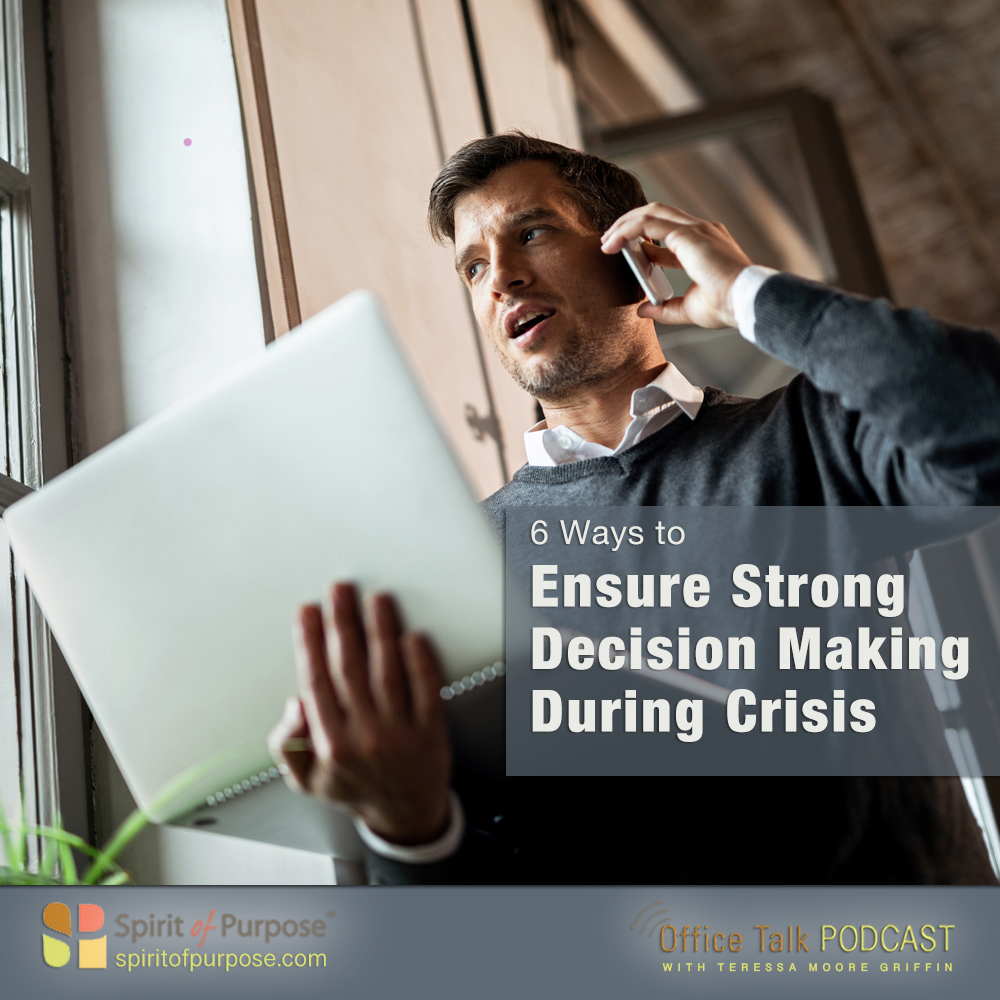PODCAST: How to Keep Decision Making Strong During Crisis
When crises like the Coronavirus impact the business world, it’s important to have a good structure for decision-making. McKinsey & Company offers 6 tips to ensure your decision-making remains solid when battling the unprecedented and unbelievable.
- First, take a breath. Step back, take stock and prioritize. Consider the long-term implications – look beyond what’s happening right now. This alleviates the temptation to jump from one urgent task, or assumed solution, to another. Think broadly. Ask, what’s most important now, what’s missing, how might things unfold, what can we do now that will pay off later.
- Involve more people. Reach beyond your usual go-to team. Invite a diverse group of stakeholders to the table. Consider a fishbowl model where key decision makers and experts are constants at the virtual table, with a few rotating contributors.
- Make the critical small choices. Think through potential scenarios and anticipate a range of possible solutions. Engage others who can help identify which small decisions need immediate attention or need to be monitored and revisited later.
- Set up a nerve center. If given clear mandates, a network of cross-functional teams can focus on their area of expertise, while a central team keeps everyone coordinated, collaborating and operating with transparency.
- Empower leaders with judgement and good character. Find people who are curious, respectful of others and their points of view, flexible, and can make tough calls – those who have demonstrated resilience, made and sold unpopular decisions because they were the right thing to do, and shared bad news up the chain.
- Finally, go big or go home. Other crises have taught us that there’s danger in underreacting. Don’t let fear lead if the situation requires bold, rapid, even an uncomfortable, risky response. In our current crisis, many organizations decided to shut down before it was mandatory. They showed the world that some crises demand incredibly hard calls, the long-term ramifications of which can’t be known.


